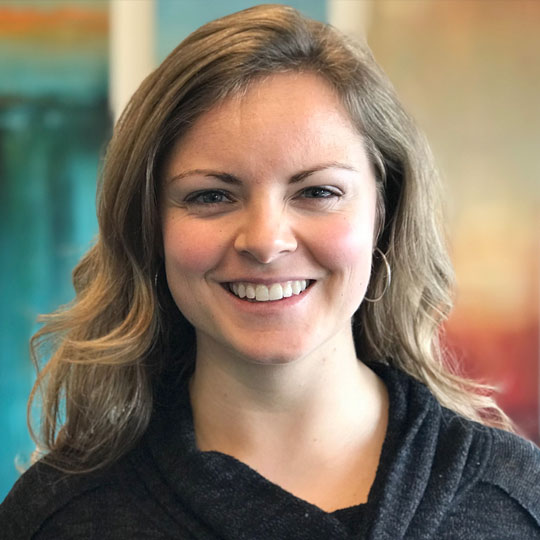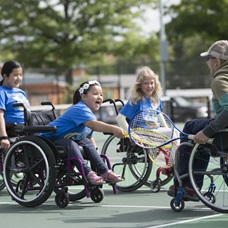Better Together
St. Luke’s invests in long-term health of kids, supporting CASA's work with most vulnerable

Court Appointed Special Advocates of Southwest Idaho recently finished their 12 Kids in 12 Days campaign, which celebrated Treasure Valley foster children their program has supported, in part thanks to the St. Luke’s Community Health Improvement Fund (CHIF) grant.
Last year, the Caldwell-based nonprofit served nearly 600 of the area’s most vulnerable children with help from more than 100 volunteers or “CASAs.”
A CASA is assigned to a child or family of children following temporary removal from their home by the Idaho Department of Health and Welfare, usually with suspicion of abuse or neglect. While the case is active, the CASA meets monthly with their assigned child (or children). They get to know their home and school lives, meet with teachers, counselors, coaches and whoever the child is around.
“We have a court order from the judge that allows our volunteers to check on every area of a child’s life,” CASA of Southwest Idaho Executive Director Bekah Bowman said. “During parent visits, they can look in the fridge to check for food. They can meet with teachers, with counselors.”
The job of the CASA is to get to know the child so intimately that they can make an informed recommendation to the judge about a long-term placement that’s in the child’s best interest. A decision is made to either reunite the child or children with their family or permanently place them with a member of their extended family or a foster family.
And because cases can last several years, CASAs build strong relationships with the children they work with.

“We had one situation where a child was going to get placed into a family and our CASA volunteer was the only person in the room (that included teachers and Department of Health & Welfare representatives) who had been on the case the entire time,” Bowman said.
“It’s incredible the work that we get to do for kids.”
One such duo who benefitted from the careful eye and dedication of their CASA was Rex and Lucy.
The siblings were removed from their home after their dad went to prison and their mom, suddenly a single parent, struggled with her mental health and sobriety and to find stable housing.
Once removed, the children’s CASA made sure the two siblings stayed housed together. During their visits, she prioritized fun to help them remember that despite the situation, they are still kids. They played soccer, read silly books and peeled string cheese. The CASA volunteer also noticed patterns of behavior in Rex and Lucy’s mom during home visits that led to an ADHD diagnosis. Her ADHD seemed to be at the root of her depression, anxiety and lack of motivation. Once she was back on her feet, she regained custody of her children.
“Reunification is always the goal,” said Dr. Noreen Womack, a four-year CASA volunteer and pediatrician in St. Luke’s mobile care clinic.
Womack became a CASA herself after her experience working with CASAs in the clinical setting and the value she thinks they bring to children.
“These are some fantastic kids who have had a rough start,” Womack said. “They’re wonderfully intelligent and if we can keep them in school and make their homes a safe place, you can make a world of difference.”

Most child protection judges aim to assign a CASA to every child under the age of 18, with Idaho law requiring all under 12 to have an advocate. In Canyon County alone, approximately 355 children are in the foster system each day, according to 2022 to 2023 data from Fostering Court Improvement. This makes assigning a CASA to all these children difficult.
Right now, CASA of Southwest Idaho must triage and prioritize. The goal remains to be able to support every child, which means more volunteers.
That’s where St. Luke’s has helped. Not only are some of its own, including Dr. Womack, choosing to volunteer, but much of CASA of Southwest Idaho’s CHIF grant funding has supported volunteer recruitment and training.
Prepared to change lives
Volunteers must complete initial screenings and background checks before they’re considered for training. They then complete 30 hours of pre-service training and are assigned to a case. All CASAs are supported by an on-staff supervisor and have access to continuing education through a resource library.
“They give you a lot of support,” Womack said.
And this sets volunteers up to support the children they’re assigned to.
“Everyone is talking about mental health and children right now,” Womack said. “If you can get vulnerable kids in safe places and provide positive relationships early, you can improve anxiety and depression in teens. It’s a development need for kids to hear that they’re worthy, they’re smart, they can do hard things. If kids can get those kinds of messages from responsible adults in elementary school, we can avoid some downstream struggle that we’re seeing.”
“When you want to invest your time and money and want to get a return on your investment… the place you can have the most positive effect is with vulnerable children.”
Read more stories about children like Rex and Lucy in CASA of Southwest Idaho’s 12 Kids in 12 Days campaign series and learn more about their work online.
About The Author

Alexis Bennett is a consultant for St. Luke's Community Health and Engagement.


